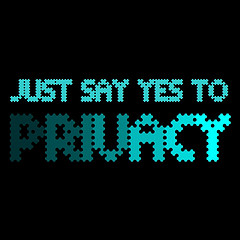I like to think of myself as pretty savvy when it comes to online safety and security, but this post is all about how even the most “wired” people can slip up and expose themselves to the dark side of social media.
When a family member passed away, I used my various social media accounts as an outlet to relieve some of the tension that surrounds an event like this. Facebook, in particular, was a great platform for me to let it all out, and in turn, to hear from friends and family and share stories. I keep my Facebook locked down pretty tight, only letting in actual real-life friends, family members, etc. I’m always checking my privacy settings and tweaking things as necessary, too, so I wasn’t really worried about letting too much information out there since I wouldn’t “Friend” anyone on Facebook if I didn’t know and/or trust them. I do the same thing on my other social media accounts, too, but it’s really only on Facebook where I delve into more personal things with any regularity.
The funny thing about online safety and security, especially regarding social media, is that it’s often the setup of your account that can get you in trouble, not necessarily the details of the message you’re sending out.
On the day of the funeral I posted that I was going, and I even listed what time it was. It seemed pretty innocuous when I posted it, but minutes later a friend messaged me, suggesting that I have someone we trust watch where we live while we’re gone, because there are groups of people who target funeral goers and rob their homes while they’re away for a few hours. She even knows of people who this actually happened to, so her message hits a little closer to home.
That didn’t even occur to me! Here I think I’m Mr. Safety, and someone else points out a security issue to me. In the immortal words of Homer Simpson… D’oh! Granted, I had a lot on my mind, but still… It just helps reinforce that no matter how prepared you are, there’s always a new tip or trick to learn that will help keep things safe and secure, and can come from anywhere and from anyone.
Well I quickly scrambled to find a trusted person to keep an eye on the place, and I’m happy to say that we came back to an unsullied home.
I’ve put together a list of events and activities that could possibly be exploited if you make your plans public. I figured a good bakers dozen would be a fine start, but this is definitely not an exhaustive list.
- Vacations
- Weddings
- Births
- Funerals
- Graduations
- Birthdays
- Grocery stores
- Shopping
- Family visits
- After-work events
- Movies
- Theater performances
- Concerts
The long and the short of it is that you’d be a lot safer holding off on any pre-event social media messages. Wait until it’s over and then make a post if you want. It’s better to be safe than sorry!
If you have any similar stories, or if you can think of a few events or activities that people might want to watch out for when posting, please let us know in the comments below.
If you're looking for great anti-virus software that won't break the bank, try StopSign. You don't pay extra for tech support for difficult malware, and our web protection software just works. Download & install StopSign to find out why our members choose us over the other options.









Recent Blog Comments